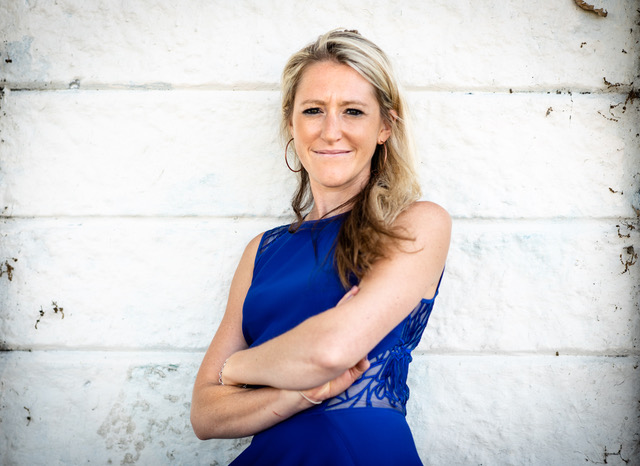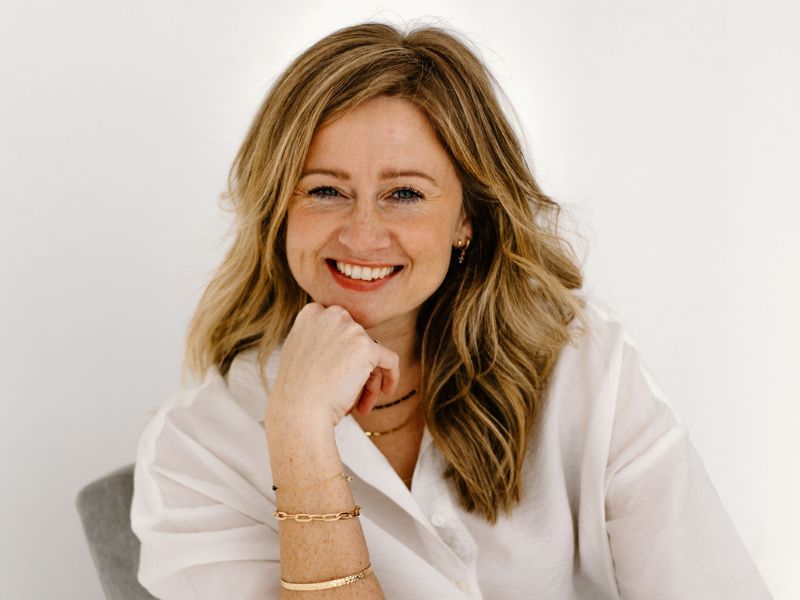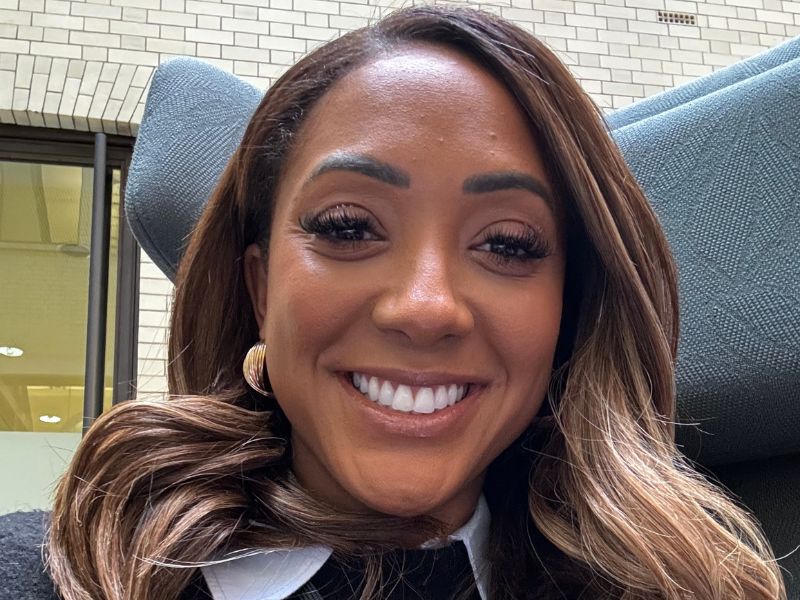Hope Virgo is the Author of Stand Tall Little Girl, and an international leading advocate for people with eating disorders.
Hope helps young people and employers (including schools, hospitals and businesses) to deal with the rising tide of mental health issues which affect one in four people and costs employers between £33 and £42 billion annually.
She has been described by Richard Mitchell, CEO of Sherwood Forest Hospital, as “sharing a very powerful story with a huge impact”. Hope is also a recognised media spokesperson, having appeared on various platforms including BBC Newsnight, Good Morning Britain, Sky News and BBC News.
Tell us a bit about yourself, background and your current role
I developed anorexia when I was 12 years old and it was my everything. It took over all over me, giving me a sense of value and security. I lived with my anorexia for the next four years keeping it secret from everyone around me. Eventually, aged 17, I was admitted to a mental health hospital where I spent the next year of my life trying to recovery. The thing about anorexia is that recovery is so unbelievable hard, there are times when you long for that anorexic voice back, times when you hate it and times when that battle in your head is so unbearable. Even when I had anorexia I knew there was so much stuff that I wanted out of life. I wanted a job, to travel, to run, and to have children one day. I realised that the anorexia was going to stop me getting to that point but I had to focus on all of these things to motivate me to get well.
I am the Author of Stand Tall Little Girl and a leading advocate for people with eating disorders. I work across UK with corporates, the NHS, Schools and the Government to raise awareness of mental health and to equip others to manage their own mental health. I have been working for myself for just over a year and I absolutely love it. I have had to learn about creating boundaries though. Working for myself means I sometimes feel the need to work all the time, I say yes to pretty much everything and then worry I am not working hard enough. It has taken me a while to work this out and I am still learning but I am getting there.
Did you ever sit down and plan your career?
I had this whole plan. I would work in public affairs, work my way up an organisation that worked for a cause I was passionate about and then become a Director. But this all changed in 2016 after I came through my relapse of anorexia. I decided to write a book about my life, sharing my honest story of recovery. I wanted to challenge the myth that to have anorexia you have to be stick thin, to help others not feel alone and to make sure that people know recovery isn’t a straight line but is one hundred percent possible. After my book came out I began to get invited to do speaking engagements and then in 2017 I quit my full time job and have dedicated my time to being a mental health campaigner and public speaker.
I have tried to be a bit more business savvy this year after successfully working for myself for a year.
Have you faced any challenges along the way?
One of my biggest challenges is that I look quite young and so people don’t always take me seriously. Now this one bothers me less as I am getting more confidence in what I do, but at times I do still find it frustrating.
What has been your biggest achievement to date?
My biggest achievement was cycling the length of the country, over 1100 miles over a two-week period in 2018. I wanted to cycle John O’Groates to Lands’ End to raise awareness of mental health education and to help others know that exercise can be a really positive part of recovery. Cycling that far and having to fuel the right way was unbelievable difficult at times. Not just because it is a hard challenge but because I had to manage my recovery from anorexia at the same time. When I completed JOGLE it was this amazing experience and I was slightly shocked as I stood there at the finish line with a bottle of prosecco. But achieving that and managing my recovery, managing that voice in my head was such a thing to celebrate!
What one thing do you believe has been a major factor in you achieving success?
My passion and my drive. I feel so passionate that I am going to change the system for the better for people, I feel passionate about wanting to make sure others know that they can recover from anorexia. It is this that drives me forward every day. I visit inpatient units once every 2 weeks and get messages daily from individuals, every time I do I am reminded why I need to keep doing what I am doing. It’s the support of others that helps keep me moving forward and not giving up.
I launched a campaign back in July: “Dump The Scales”. This has been debated in parliament, had over 67,000 signatures and I am now working closely with the Department of Health and Social Care to tackle the issues around diagnosis rate further. I never thought I would get anywhere with it. But my drive and my passion has helped get the campaign where it is. (As well as the amazing support from all those who have signed the campaign and come forward sharing their stories.)
How do you feel about mentoring? Have you mentored anyone or are you someone’s mentee?
I have never been mentored but I think mentoring is so important. It allows individuals to develop further, gives space for open dialogue and any sorts of questions. In the line of work, I do I often work closely with individuals who want to share their stories. This is similar to mentoring because it is about empowering these individuals to know that it is okay for them to share their stories, and to help them develop the skills and confidence to do just this.
If you could change one thing to accelerate the pace of change for Gender Parity, what would it be?
It is about getting more women as role models, sharing stories, working in a variety of jobs. Enabling women to feel empowered to speak up and to empower other women to do the same across all sectors, including education, medicine and politics. We need to help women and girls increase their global platform so that our voices are heard in all decisions and so we are at the forefront influencing change.
We need to then talk about these female role models whether that’s in the education system or in our homes we need to help other younger females aspire to be like that too. By having these role models, it will change the narrative of what girls can and can’t do. I hope my work is helping that little bit to move things in the right direction.
If you could give one piece of advice to your younger self what would it be?
Talk and believe in yourself. I spent a lot of my childhood having very bad self-esteem, I felt trapped in my thinking and my beliefs and did not really know what to do about it. I felt ashamed that I felt certain things and that certain things had happened to me. If I could speak to my younger self, I would tell her to talk. Don’t feel ashamed of certain feelings that you feel. Don’t be embarrassed. Embrace who you are and if bad things happen use those to create passion and drive to push for change.
What is your next challenge and what are you hoping to achieve in the future?
In the future I am hoping to change understanding around eating disorders. I want everyone to know that just because someone looks okay doesn’t mean they aren’t struggling with thoughts in their head around food. I want everyone to be able to access support and regardless of it they are at that crisis point.
WeAreTheCity has a back catalogue of thousands of Inspirational Woman interviews, including Cherie Blair, Paula Radcliffe MBE, Caprice Bourret, Anna Williamson and many more. You can read about all our amazing women here.









